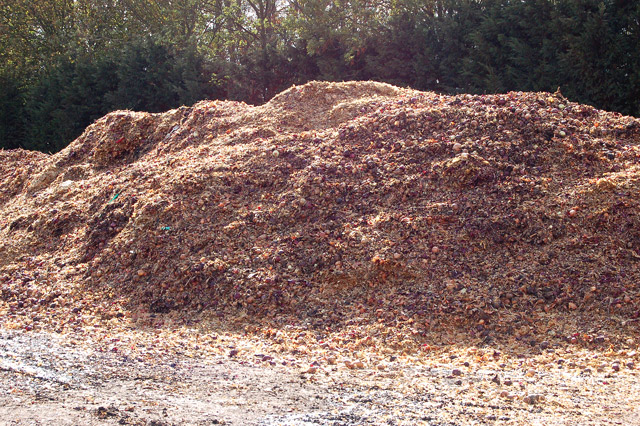Pros of Traditional Composting
- Environmentally Friendly: Reduces waste sent to landfills, decreases methane production, and creates a valuable resource for the farm.
- Improves Soil Health: Enhances soil structure, fertility, and water retention, leading to healthier crops and plants.
- Cost-Effective: Utilises readily available farm waste and requires minimal financial investment.
- Simple and Natural: Relies on natural decomposition processes, mimicking nature’s own recycling system.
- Educational: Provides hands-on learning opportunities for young people about ecosystems, sustainability, and resource management.
Cons of Traditional Composting
- Time-Consuming: Can take several months to produce finished compost, depending on materials and conditions.
- Space Requirements: Needs a designated area for the compost pile, which may be challenging on smaller farms.
- Odour Potential: If not properly managed, compost piles can emit unpleasant odours, especially during the initial stages of decomposition.
- Attracts Pests: May attract rodents or insects if food scraps are not buried properly within the pile.
- Requires Maintenance: Regular turning and monitoring of the pile are necessary to ensure optimal decomposition.
Implementation on a Farm for Educational Purposes
- Designated Composting Area: Select a well-drained, accessible location for the compost pile, ensuring enough space for turning and expansion. Consider creating multiple smaller piles for different composting stages to facilitate learning.
- Material Collection: Involve young people in gathering a variety of organic materials from the farm, including:
- “Browns” (Carbon-rich): Dry leaves, straw, hay, wood chips, shredded newspaper, cardboard.
- “Greens” (Nitrogen-rich): Grass clippings, kitchen scraps (avoid meat and dairy), manure, coffee grounds, tea bags.
- Layering the Pile: Teach young people about the importance of proper layering. Start with a layer of coarse “browns” for aeration, followed by a layer of “greens,” and then a thin layer of soil to introduce microorganisms. Repeat layering until the pile reaches a suitable height.
- Monitoring and Maintenance: Guide young people in regularly checking the pile’s temperature, moisture level, and overall health. Explain the importance of turning the pile to introduce oxygen and ensure even decomposition. Discuss troubleshooting techniques if problems like odors or pests arise.
- Compost Use: Once the compost is mature (dark, crumbly, and earthy-smelling), demonstrate how to apply it to gardens, fields, or potted plants. Discuss the benefits of compost for plant growth and soil health.
- Educational Activities: Incorporate additional learning opportunities, such as:
- Compost Journal: Have young people document observations and track the decomposition process over time.
- Worm Composting Bin: Introduce vermicomposting as an alternative method, demonstrating how worms contribute to the process.
- Compost Tea Making: Teach young people how to brew and use compost tea as a liquid fertilizer.
- Field Trips: Visit local composting facilities or farms that utilize large-scale composting systems.
Educational Benefits
- Science and Biology: Learn about decomposition, microorganisms, nutrient cycles, and soil science.
- Environmental Awareness: Understand the importance of waste reduction, recycling, and sustainable practices.
- Critical Thinking and Problem Solving: Observe and analyse the composting process, troubleshoot issues, and adapt techniques.
- Responsibility and Teamwork: Share tasks and responsibilities in managing the compost pile, promoting collaboration and cooperation.
- Connection to Nature: Develop a deeper appreciation for natural processes and the interconnectedness of living systems.
By implementing a traditional composting method on a farm, young people can gain valuable knowledge and skills while contributing to a healthier and more sustainable environment. This hands-on experience fosters a sense of stewardship and empowers them to make positive changes in their communities.
Discover more from Youth Work in Cornwall
Subscribe to get the latest posts sent to your email.


Leave a Reply